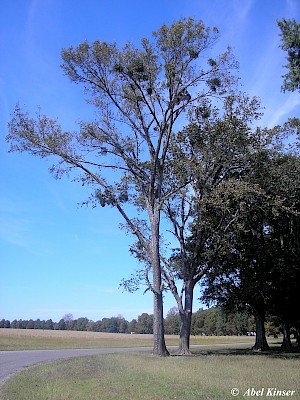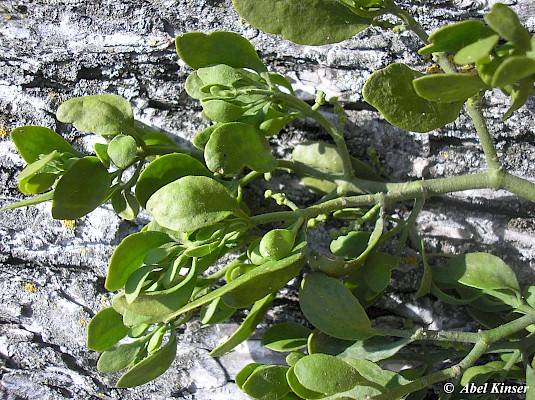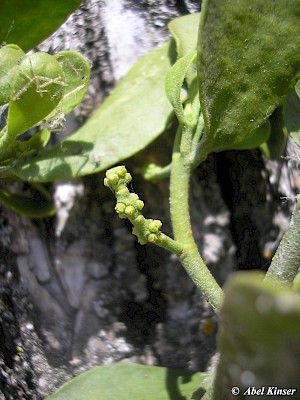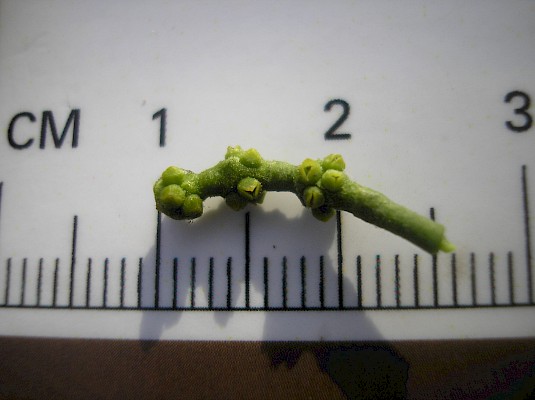Phoradendron leucarpum
For more information, see this article.
| Scientific Name: | Phoradendron leucarpum |
| Synonym: | Phoradendron serotinum |
| Family: | Viscaceae |
| Common Name: | Mistletoe |
| Authority: | (Raf.) Rev. & M.C. Johnson |
| Etymology: | Phoradendron is Greek for "tree thief" referring to the parasitic nature of the plant and leucarpum is Greek for "white fruits" which this species has. |
| C Value: | 7 |
| Wetness: | UPL |
| # of Species in Genus in Illinois: | 1 |
| Duration: | Perennial |
| Reproduction: | Dioecious |
| Flower Type: | Imperfect |
| Flower Shape: | Actinomorphic (radially symmetrical) |
| Flower # of Parts: | 3 |
| Flower Color: | Green, Yellow |
| Growth Habit: | Woody |
| Leaf Arrangement: | Opposite |
| Leaf Type: | Simple |
| Leaf Shape: | Oval (widest at middle) |
| Leaf Shape Term: | |
| Leaf Margin: | Entire |
| Leaf Toothing: | N/A |
| Stem Surface: | Pubescent |
| Trunk/Bark: | N/A |
| Armature: | None |
| Twig Characteristics: | Green and pubescent with stellate hairs. |
| Habitat: | Forest |
| Distribution: | BONAP Distribution Map |
| Status (State): | Not Listed |
| Status (Federal): | Not Listed |
| ID Tips: | This species is easily identified in the winter because it is evergreen and grows on deciduous trees. |
| Gee Whiz: | This plant is often used during the winter holidays, prompting those who stand beneath a piece of mistletoe attached to the wall to kiss. The tradition started in ancient Greece, because the plant was seen as a symbol of life and fertility due to the fact that is stays green in the winter. |
| Humor: | This plant may be seen as a symbol of life so it's ironic that it actually deprives its host of life because it is parasitic. |
| More Info: | Illinois Wildflowers Search |




